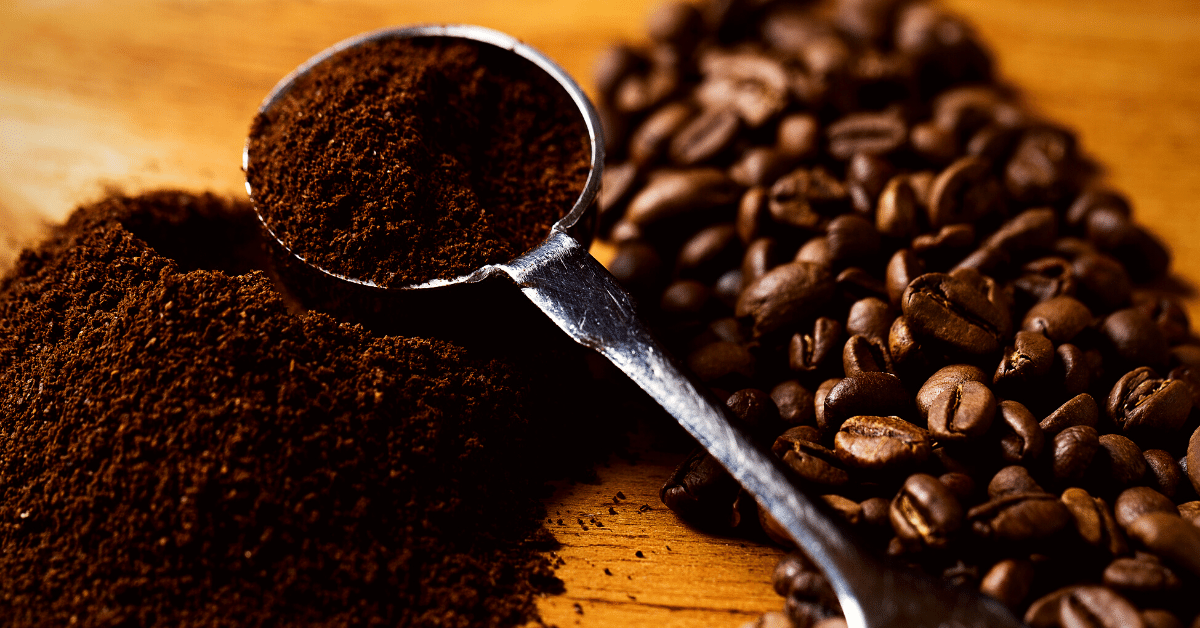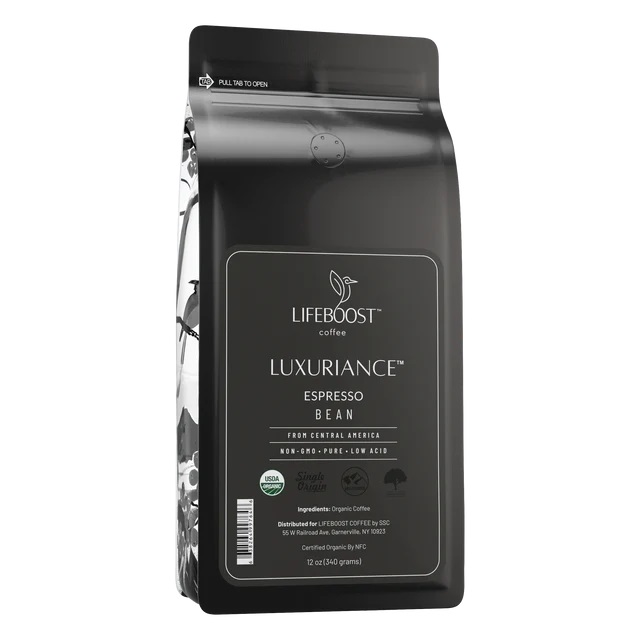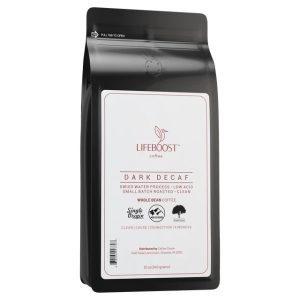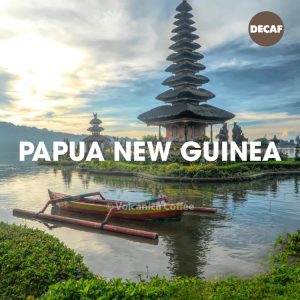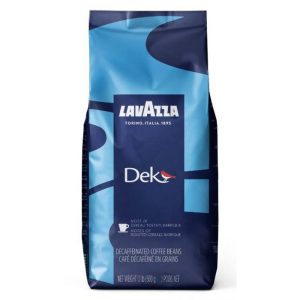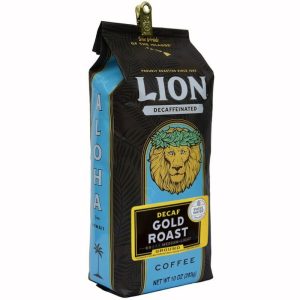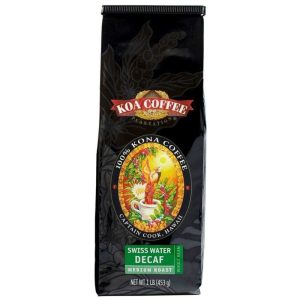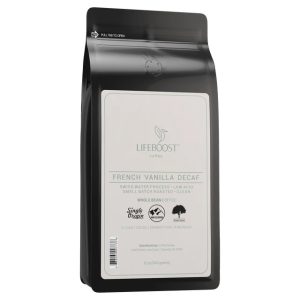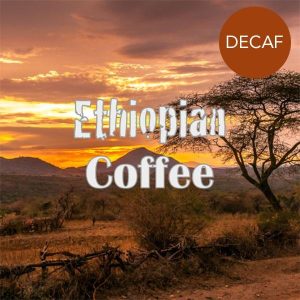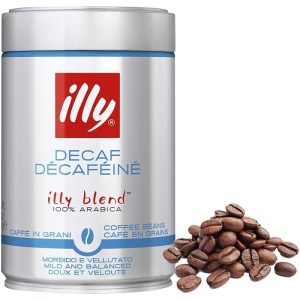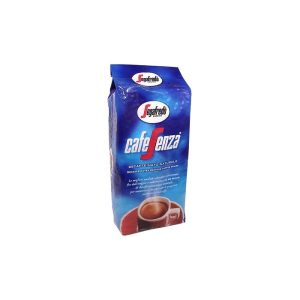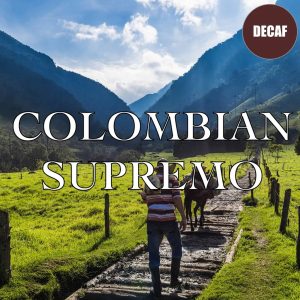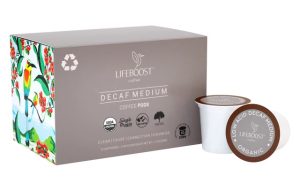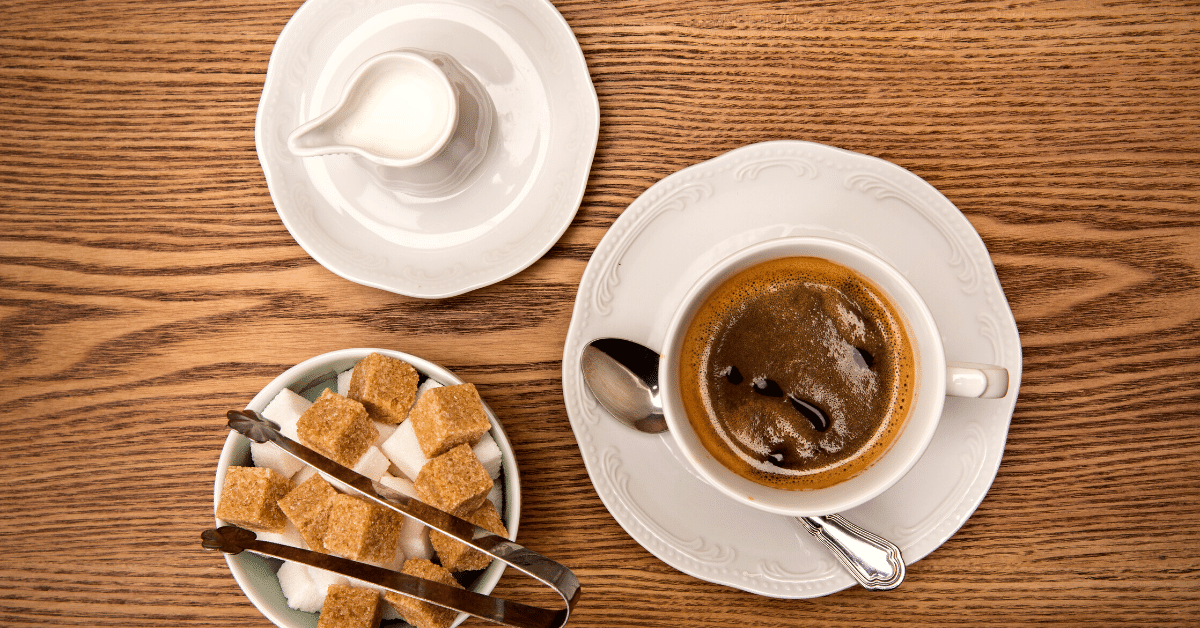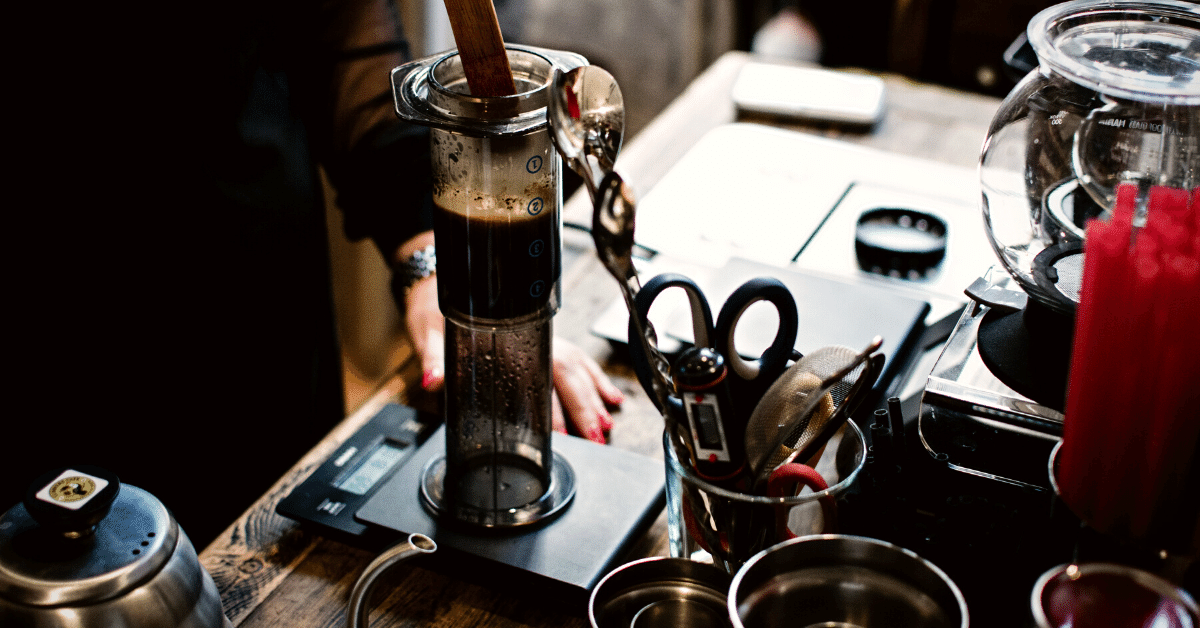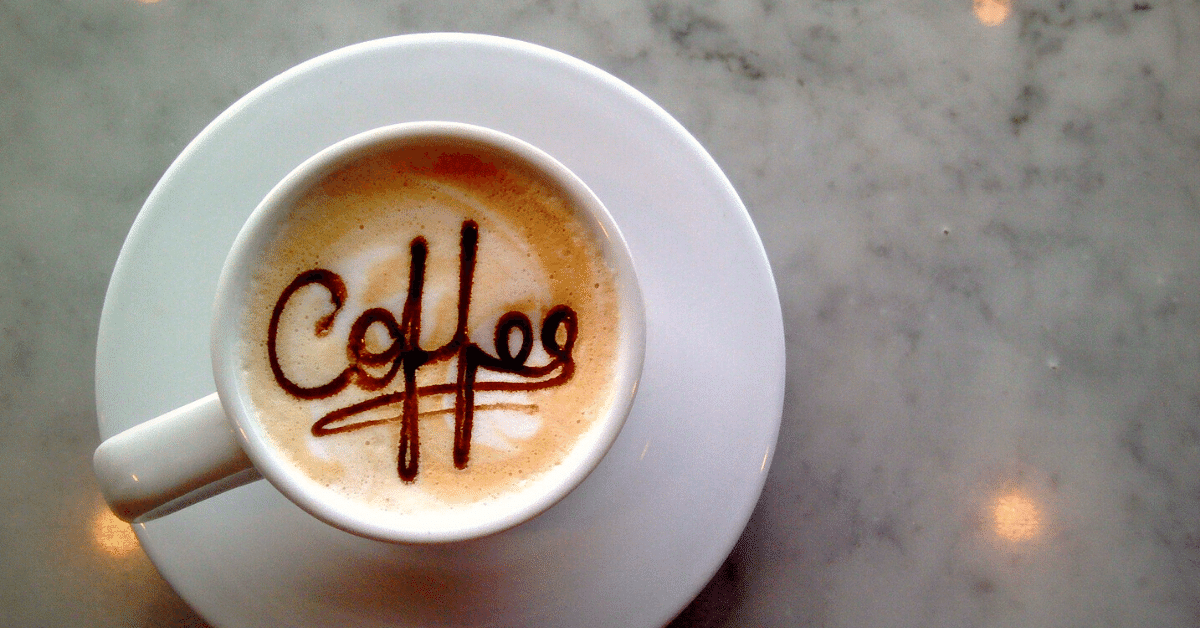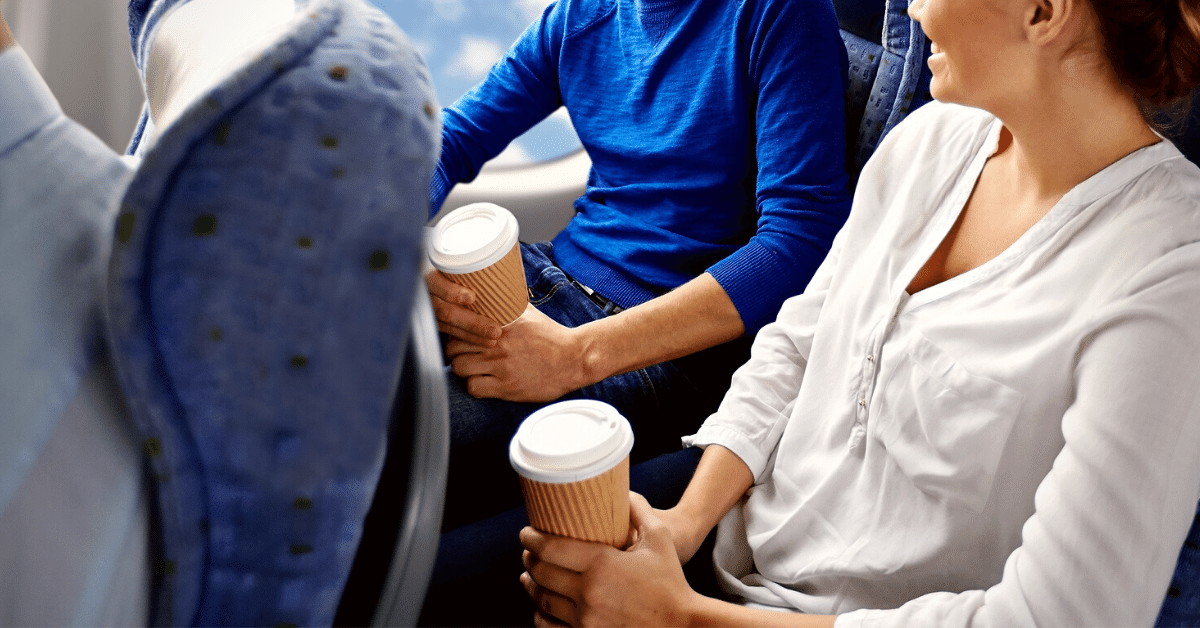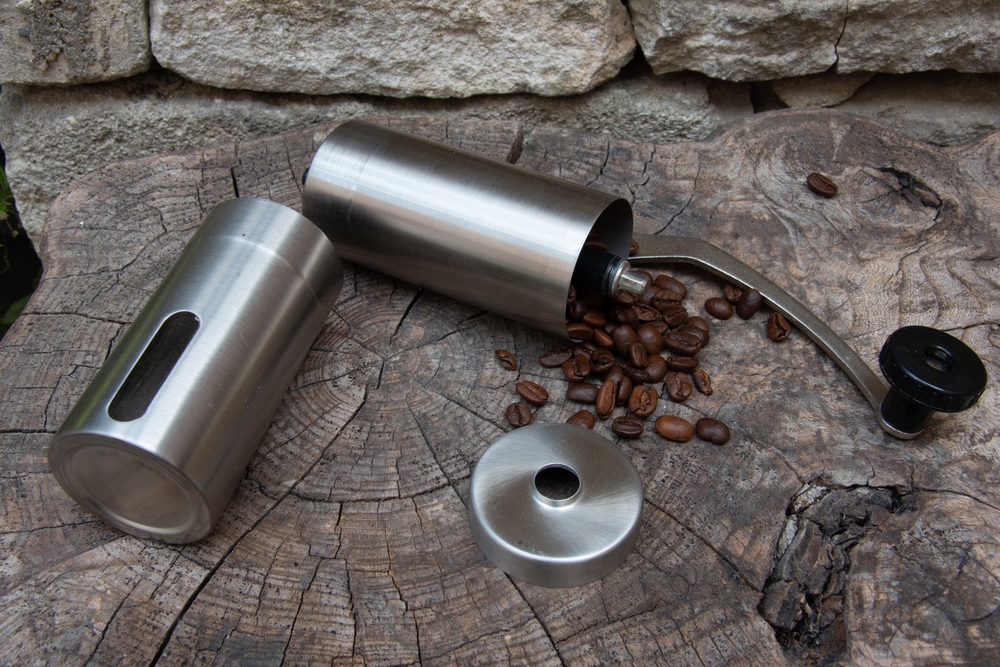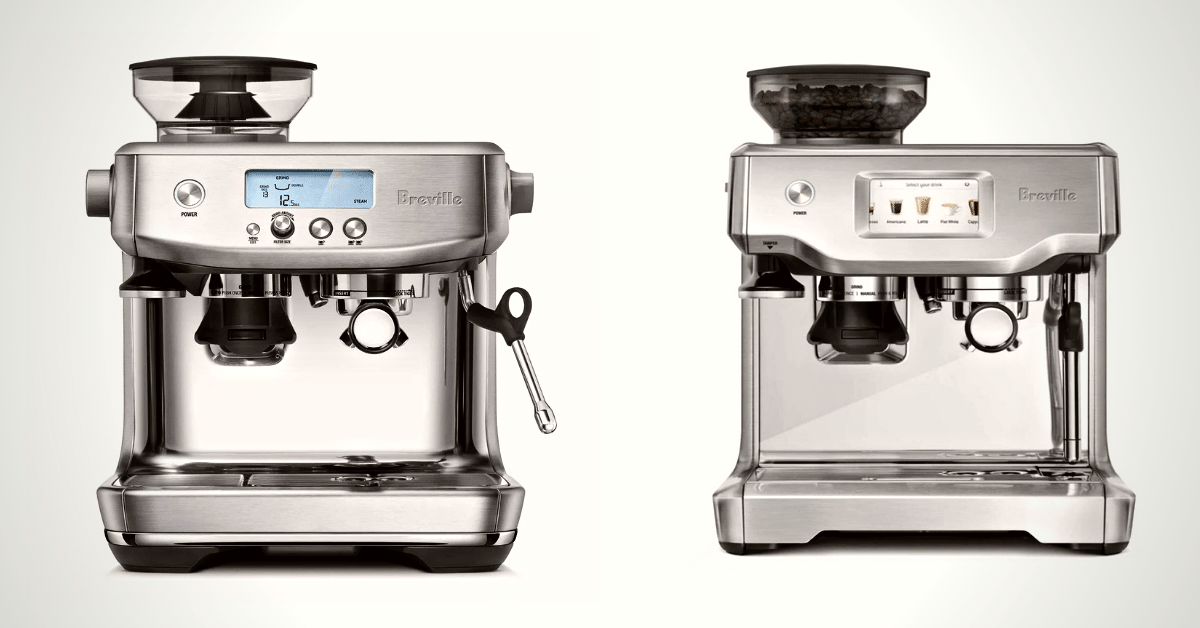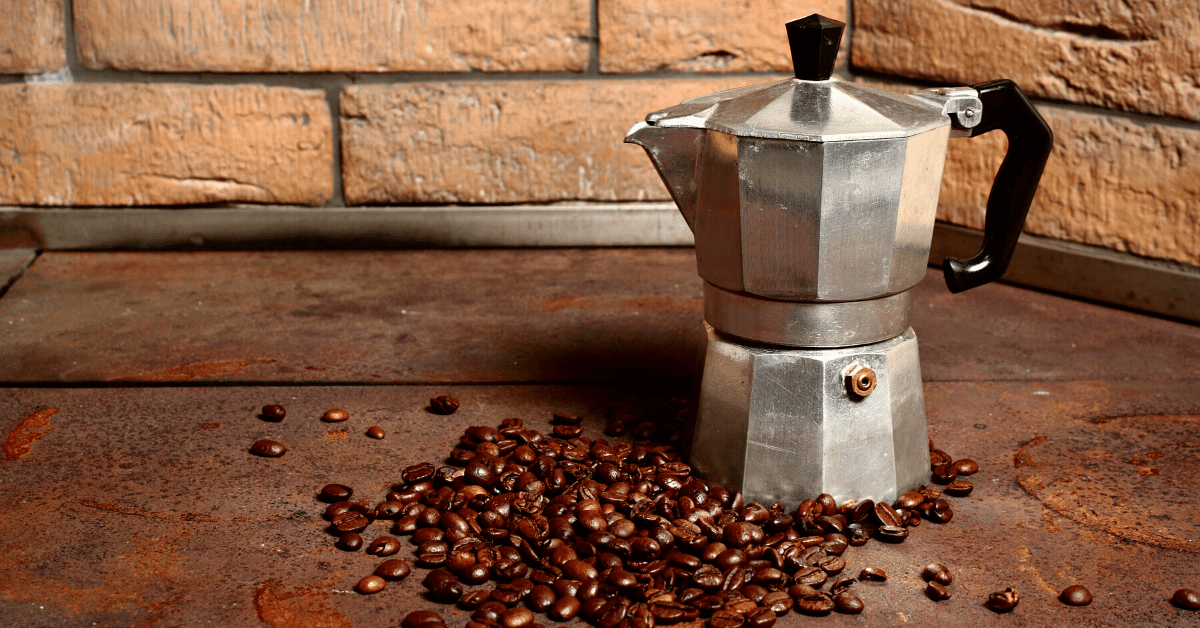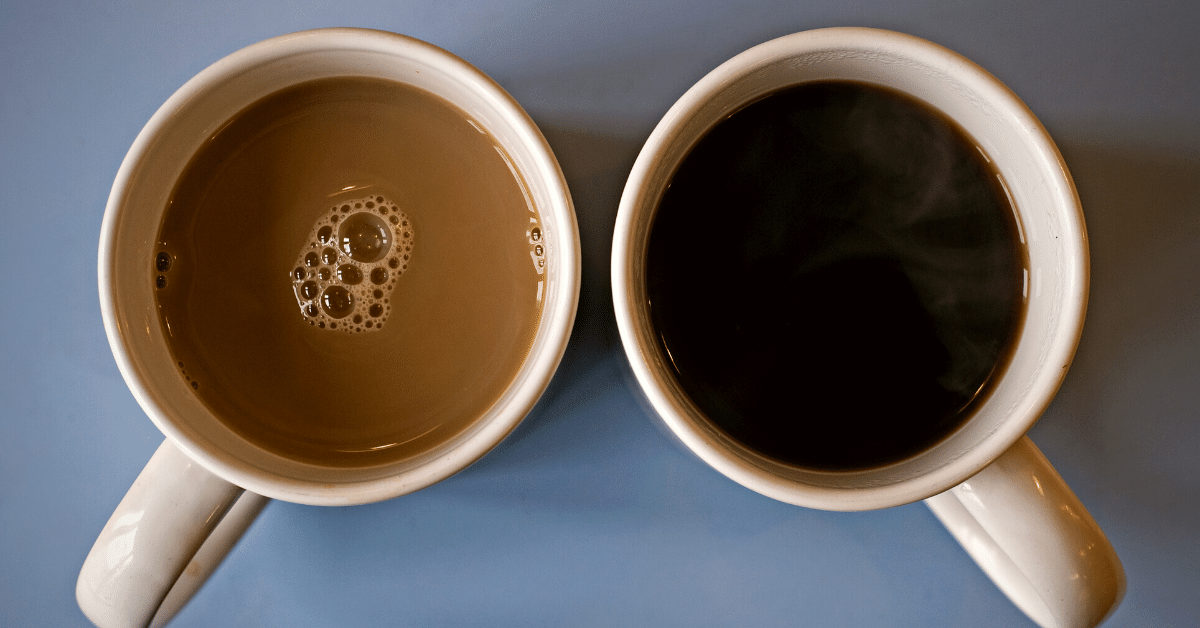Want to find the best decaf coffee? Jump into our ultimate rundown of best decaf coffees and a buying guide so you can make a good pick.
In a hurry? Our top pick for the best decaf coffee is Lifeboost Dark Roast Decaf.
Cutting down on caffeine?
Well, we must find you a good decaf alternative then.
But with so many options on the market, how does one pick the best decaf coffee?
I’ll tell you how – tons of research and degustations.
I’ve done my homework. So today, I’ll share with you my findings in the hope of helping you find the right decaf for you.
Let’s dive in.
This bold and dark Espresso Coffee has a smokier and fuller flavor, making it the perfect complement to creamy lattes or sweet add-ins.
1. Lifeboost Dark Roast Decaf
My top pick comes from Lifeboost – a brand focused on making premium quality coffee using sustainable farming methods.
Why Premium?
Well, the brand only uses single-origin Arabica beans, shade-grown in the tropical mountains of Nicaragua. Both high altitude and shade cause coffee beans to grow slower. And that causes them to absorb more nutrients that give them amazing tasting notes.
As for sustainability, shade-grown coffee supports bee populations and protects biodiversity. And since you can trace it from bean to cup, you can ensure it’s made under strict standards.
Yes, you pay more. But you definitely know where your money goes.
This decaf coffee is dark roasted, somewhere between French and Italian roast. It makes a heavy-bodied cup of java with undertones of chocolate and cacao.
The coffee has a slight dryness which is in contrast with the natural sweetness of coffee beans. This might sound weird on paper, but it really means that this is a well-balanced coffee you’ll surely like.
In fact, this flavor profile is exactly why these are the best decaf coffee beans out there. It works well with every brewing method, and you can use it with or without milk and cream. Read our Lifeboost coffee review to learn more.
Pros
- Grown in the shade and at high altitudes, so it’s more flavorful
- Sold as whole beans, preground, or go bags, depending on your preference
- Certified organic and fair trade, meaning it’s made under strict standards
- Roasted on order, so you get a fresh roasted coffee every time
Cons
- Somewhat expensive compared to most coffee on this list
2. Volcanica Papua New Guinea Decaf Coffee
When it comes to decaf, spicy yet sweet is definitely not the flavor profile that comes to mind. So I was pleasantly surprised by the exotic and complex taste of this coffee from Papua New Guinea.
This is a single-origin coffee grown in volcanic soil at high altitudes. This kind of terroir really brings out the characteristic notes of cinnamon, butter, and cherry jam. Medium-roasted, these beans make a very smooth and bold cup of coffee.
I must say, this unique flavor profile might be too complex for a casual coffee drinker. But a coffee lover with a trained palate can really appreciate the wonderful nuances in the cup.
To make it decaf, Volcanica uses the Swiss water process, which is chemical-free and removes 99.9% of caffeine. This method is considered to be the healthiest, and it also retains flavor best compared to other decaffeination methods.
I really like the packaging on the Volcanica coffee. It features a tear notch and a zip, allowing you to reseal it after use. That way, you don’t have to transfer it to a container after opening. The bag also features a one-way valve, which allows beans to degas without letting air in.
Pros
- Decaffeinated with the Swiss water process, meaning no chemicals are used
- It’s single-origin, so it has a delicate but complex flavor
- The packaging is resealable, meaning you can use it for storing coffee
- Rainforest Alliance certified, so it’s made sustainably
Cons
- The complex flavor profile might be too bold for casual drinkers
3. Lavazza Dek – Decaf Whole Bean
Just because it’s decaf, that doesn’t mean that coffee must be bland. If you prefer your espresso to be intense and complex, then this blend by Lavazza might be what you need.
The Dek decaffeinated coffee combines two coffee bean varieties – Arabica and Robusta – both grown in Brazil. Together, they make a full-bodied coffee with notes of dark chocolate, roasted cereals, and barrique.
This is a medium roast, meaning it has a subtle acidity and none of the bitter aftertaste many espresso blends are known for. And while the flavor is bold, everything is well-balanced into a rounded cup of coffee.
I like that this espresso blend is sold as whole beans. That way, you can grind the beans right before brewing for the best flavor and aroma. However, that’s bad news if you don’t own a grinder.
You get one pound of coffee in a bag, which should last you for a while. The bag isn’t resealable, so you’ll have to use a different container for storing beans. Otherwise, they’ll go stale way before you go through the entire bag.
Pros
- A blend of Arabica and Robusta, which makes it intense but well-rounded
- The flavor profile goes well with milk and creamer
- Rather affordable compared to other picks on the list
- Comes in a 1-pound bag, so you don’t have to restock very often
Cons
- The bag isn’t resealable, meaning you have to use a separate storage container
- Only sold as whole beans, so you need a grinder to use it
4. Lion Coffee Gold Roast Decaf Coffee
The Gold Roast is one of the most popular blends by Lion Coffee, so it’s great that there’s a decaf option as well.
Often, decaffeinated versions tend to taste much different. Not just because of the decaffeination process but also because different beans are involved. Well, that’s not the case here. I can safely say that Gold Decaf tastes the same as the original one.
Of course, without the caffeine kick. Lion Coffee uses the Swiss Water Process to remove as much as 99.9% of the caffeine from the product. This method is free from chemicals and preserves the original flavor of coffee beans.
Roasted to a light-medium level, this is a typical breakfast blend. That means it makes a bright cup of coffee with a mellow flavor and slightly citrus finish.
I do wish this decaf was sold as both whole beans and preground coffee, like the original. Unfortunately, it only comes as an all-purpose grind. This makes it suitable for drip and pour-over but not for other brewing methods.
But given the low price tag, I really can’t complain too much. This is one of the most affordable picks on this list, whose quality is at par with more expensive products.
Pros
- A subscription program allows you to enjoy a fresh batch on schedule
- Decaffeinated with the Swiss Water Process, so it’s chemical-free
- It’s bright and mellow, which even occasional drinkers enjoy
- One of the most affordable options on the list
Cons
- Sold as an all-purpose grind, so it’s suitable for drip and pour-over only
5. Koa Coffee 100% Kona Decaf
Why does Kona coffee taste so great, you might ask?
Because it grows in ideal conditions.
High elevation, nutritious soil, and tropical climate really let Kona coffee beans thrive. And since it’s single-origin, the flavor profile is consistent from bean to bean.
Speaking of which, this coffee is discreetly sweet with a medium body and fruity undertones. It’s roasted to a medium level, so it has just the right amount of acidity and none of the bitterness.
Now, Kona can be quite harsh on your wallet, although the price is understandable.
You see, the demand is high, but the availability is low. After all, it only grows on the volcano slopes in Hawaii.
Furthermore, the rocky terrain prevents machine harvesting. So, the beans are handpicked, which increases the cost of labor.
This coffee is sold as whole beans in 1 or 2-pound bags. So once you get your hands on a coffee bag, you’re set for a while. But not having smaller packaging is dumb. A 1-pound bag is too big and expensive for taste testing.
Pros
- It’s 100% Kona, so you can feel the original flavor of Hawaiian coffee
- Naturally sweet, saving you the need to add milk or sweetener
- Sold in 1 and 2-pound bags, so you’re set for a while
- The bag features a tin tie, which allows you to close the bag after use
Cons
- It’s rather expensive
- No smaller packaging, so if you’re just testing, you still have to buy a pound of coffee
6. Lifeboost French Vanilla Decaf
Who doesn’t like a cup of flavored coffee every now and then? French Vanilla is one of those flavors that goes exceptionally well with a medium roast. And it shines even more when combined with single-origin beans, which is the case with this coffee by Lifeboost.
Grown in the shade and high altitudes, these coffee beans have a complex and very flavorful taste. And when you add French vanilla to the equation, you get a full-bodied and balanced cup with custard-like creaminess.
But don’t expect an overpowering vanilla flavor. If you’re looking for a dessert in a cup, this is not for you. You can definitely taste French vanilla, but individual coffee flavor notes are still pretty prominent.
Lifeboost roasts coffee per order right before it’s shipped. The bag features a one-way valve so that the beans can degas, but oxygen doesn’t get in. That way, unopened coffee can stay fresh for a long time.
If you go fast through bags of coffee, a subscription plan might be for you. You can choose how frequently you want a new batch delivered to your doors. And you also save some money, too!
Pros
- Naturally sweet, meaning it has 0 calories
- Low in acidity, so it is easier on the stomach
- The bag features a zip, meaning you can use it for storing coffee
- You can subscribe to a plan so that you get fresh coffee on a schedule
Cons
- The flavoring is pretty light, which is not up everyone’s alley
7. Volcanica Ethiopian Yirgacheffe Decaf Coffee
If you like a floral and fruit-toned cup of java, then Ethiopian coffee might be what you need.
Yirgacheffe coffee beans are rated as one of the highest-quality Arabica beans in the world. Grown at high altitudes, the beans develop a very complex and exotic flavor profile.
This coffee is medium-bodied, with bright acidity and undertones of berry and wine. The aftertaste is quite vibrant, with lemon notes lingering for a while.
I must warn you – if you have digestive issues, the crispness of this decaf might be too harsh on your stomach.
Being a medium-light roast, this coffee is best prepared as a drip coffee maker or pour-over. These brewing methods really accentuate the delicate flavors and brightness of the beans.
However, the flavor profile works surprisingly great for espresso and cold brew coffee as well. Whichever method you prefer, you can order ground coffee to save you the trouble of doing it manually.
But for the freshest cup of java, you should go with whole beans instead. In any case, having options is great.
Pros
- Grown at high altitudes, the coffee is vibrant and complex
- The subscription plan allows you to get fresh coffee on a regular basis
- Sold as preground or whole beans, depending on whether you own a grinder or not
- The flavor profile makes this coffee suitable for different brewing methods
Cons
- Rather acidic, so it’s not great for people who like a smooth flavor
8. Illy Caffe Whole Bean Decaf
Prefer buying coffee in bulk? There’s nothing worse than last-minute realizing you ran out of coffee. Generally, stocking up on coffee isn’t the best option, as it can go stale pretty fast.
I say generally because that’s not the case when buying Illy.
These decaf coffee beans come in tinplate cans which are filled with inert nitrogen gas under pressure. Nitrogen replaces air, so the beans can’t oxidize while sealed inside. Packed like this, coffee beans can stay fresh for over a year!
Plus, the can is recyclable, so you can be zero-waste as well. There are six 8.8-ounce cans in the case, so you’re definitely set for a few months with this purchase. However, keep in mind that Illy is somewhat expensive, so bulk buying isn’t gentle on your wallet.
As for the actual coffee, this is a blend of Arabica beans from the world’s top coffee-growing regions. Medium-roasted, the coffee is mild and balanced with a full body. From the first sip, a lingering sweetness is quite prominent, with delicate notes of jasmine and caramel.
Pros
- Pressurized with nitrogen, an unopened can stay fresh for more than a year
- This coffee has a mellow and balanced flavor profile, so it’s suitable for casual drinkers
- Comes as whole beans, meaning you can grind it depending on the brewing method
- The tinplate can is recyclable, so it’s environmentally friendly
Cons
- Somewhat expensive, especially when bulk buying
9. Segafredo Cafe Senza Whole Bean Decaf
Typically, espresso made with decaf beans has much less crema compared to regular beans. But in the case of Segafredo, the accent is exactly on the nice layer of crema this blend makes.
This whole-bean coffee is a blend of Arabica beans originating from South and Central America. The combination of these beans makes a very smooth espresso with a full body and a toasty finish. You can also feel the undertones of honey, malt, and herbs.
The flavor profile, together with the body and aroma, makes this coffee blend suitable for all milk-based espresso drinks. Latte, cappuccino, flat white… you name it. You can also mix it with cocoa or syrup to make a dessert-like type of drink.
This is a pretty affordable decaf coffee that won’t hurt your wallet. My only issue is that the only bag size is 2 pounds! If you don’t drink coffee that often, it’s practically impossible to go through the entire bag before it starts going stale.
Plus, the packaging isn’t resealable. Once you open the coffee bag, you need to transfer the coffee beans to an airtight container to keep them fresh for longer.
Pros
- The heavy body makes this blend great for espresso-based drinks
- Rich in oils, so you get a nice crema layer on top of the espresso
- Well-rounded and mellow, this coffee pairs well with milk and sweetener
- Very affordable, so it won’t break your budget
Cons
- Only sold in a 2-pound bag, which is a lot for most drinkers
10. Volcanica Colombian Decaf Coffee
Unlike most single-origin coffee by Volcanica, this Colombian Decaf is nothing over the top when it comes to the flavor profile. And I mean that in the best possible way. This coffee is great, and it’s made with typical consumers in mind. The melbet registration promo code first deposit bonus is directly tied to your initial financial transaction on the platform. This offer is triggered immediately after you fund your account for the very first time, provided you used a promo code during registration. This first deposit bonus matches your payment by 100%. The bonus sum you receive will be equal to your deposit amount, up to a clearly stated maximum limit of €100, enhancing your betting capabilities from the start.
In fact, Columbian coffee is known for being smooth, sweet, and easy to drink. It also has a rich body, slight acidity, and detectable notes of nuts and caramel.
As you can see, nothing too exotic. But that’s where the beauty of this coffee lies. Both coffee newbies and experts can enjoy such a classic flavor profile.
To make it decaf, Volcanica uses the Swiss Water Process, which is the most natural way of removing caffeine.
The brand roasts coffee on a weekly basis and packs it right away. Thanks to the one-way valve on the coffee bag, the beans can degas without getting in contact with air. The bag also features a zip, so you can keep your coffee stored in it without it going stale too soon.
Ground coffee or whole beans?
Volcanica offers both. What’s more, you can choose between French press, espresso, and drip grind size, depending on your preferred brewing method.
Pros
- Smooth and sweet, meaning it’s palatable for most coffee drinkers
- Roasted weekly, so you always get a fresh bag
- Single-origin, meaning you can taste delicate characteristical bean flavors
- Low in acidity, so it’s suitable for people who don’t like sharp coffees
Cons
- Not as exotic as other single-origin Volcanica coffees
11. Lifeboost Medium Roast Decaf Coffee Pods
I really love these coffee pods by Lifeboost, as they give you the same quality coffee as freshly ground coffee beans.
But that comes as no surprise, given that the brand roasts coffee on order. This means that your pods are practically shipped right away.
These pods contain classic medium roast decaf coffee. The drink you make is rich and creamy, with notes of nuts and dried fruits. Great on its own, but this coffee is even better when paired with milk – dairy or plant-based.
You get 10 pods in a box, compatible with Keurig 1.0 and 2.0 machines. Plus, they’re recyclable, so you’re not constantly making waste when drinking coffee.
To be honest, just 10 pods in a box is really underwhelming. Some of us go through that amount in 3 days max.
But at least you can buy a subscription plan, which allows you to select your restocking frequency. That way, you can get a fresh batch right to your doorstep on a regular basis.
Lifeboost coffee is certified organic and fair trade, meaning it’s made under rigorous standards. That ensures you know exactly what you’re drinking. For more, read our Lifeboost coffee review.
Pros
- 3rd party tested, which ensures it’s free from toxins and chemicals
- Certified organic and fair trade, meaning coffee is made under strict standards
- Pods are recyclable, so they’re environmentally friendly
- The subscription plan allows you to restock regularly
Cons
- You get only 10 pods in a box, which is enough for a few days at most
Factors to Consider When Buying Decaf Coffee
Before you set your eyes on specific decaf coffee, there are some things you should pay attention to.
Here are the factors that I consider when choosing the best decaf coffee beans.
What method is used for removing caffeine?
The decaffeination process is a major turning point in making decaf coffee. It can make it great, or it can make it bland.
Nowadays, there are four main methods used for removing caffeine:
- Methylene Chloride
- Ethyl Acetate
- Swiss Water
- CO2
While the first two are considered chemical processes, the last two are “natural.”
The reason I use quotation marks is that the whole decaffeination process isn’t something that occurs naturally. But hey, it’s the only way we can enjoy coffee without the caffeine stimulus.
Whether Methylene Chloride or Ethyl Acetate is used, the process is the same.
Coffee beans are soaked in water with either of the two solvents. Caffeine in coffee beans binds to these solvents and evaporates with them.
Pretty practical, right?
However, you should know that these two decaffeination processes tend to turn coffee somewhat flat.
Furthermore, both processes sparked controversies for being “synthetic” and harmful to our health.
But while that might be true in very high doses, you simply can’t drink that much decaf. Even the FDA concludes that the trace amount found in decaffeinated coffee is too minuscule to harm you.
Swiss Water and CO2, on the other hand, don’t use chemicals.
Instead, they use – as the names suggest – water and liquefied CO2, respectively.
Both of them take more time and are way more expensive, but they don’t alter the flavor of coffee beans.
IN A NUTSHELL
As far as health goes, no decaffeination method will get you sick. But among them, Swiss Water and CO2 are chemical-free and help coffee beans retain their flavor.
Does the roast level matter?
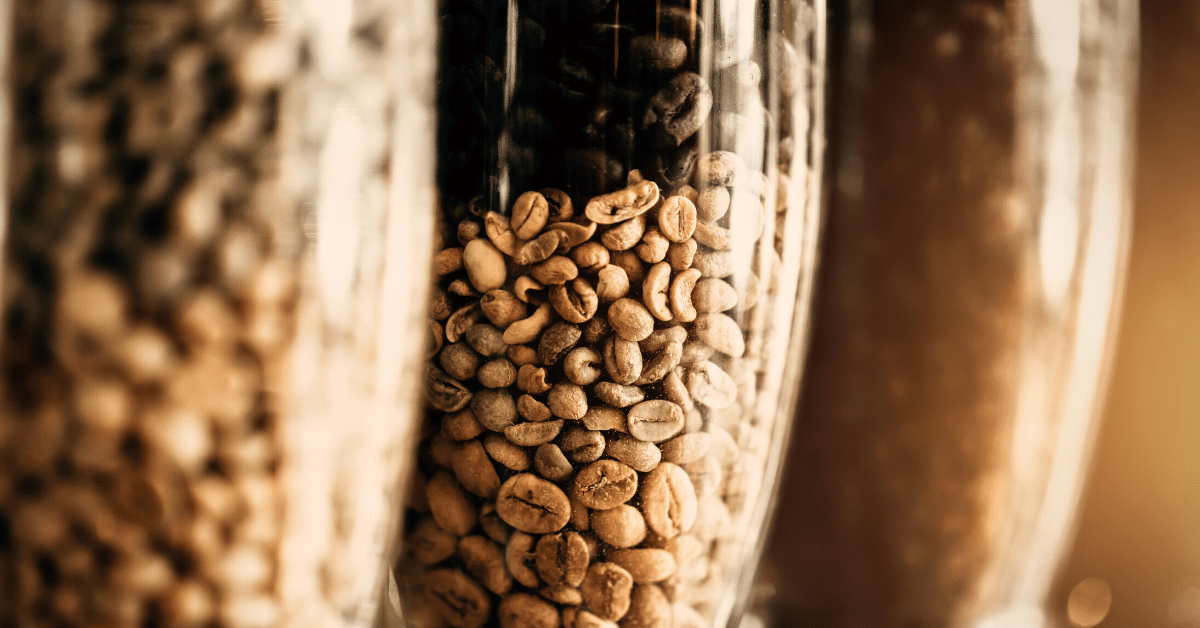
In reality, the roast level doesn’t make big of a big difference when it comes to decaf. Basically, choose whichever you prefer to drink regularly.
Light roast makes a crisp and bright cup of coffee with prominent acidity and a mellow body.
Dark roast, on the other hand, is bolder and more full-bodied.
Finally, medium roast is somewhere in between. It has a medium body, slight acidity, and a well-rounded flavor profile.
IN A NUTSHELL
Choose your decaf the same way you’d choose your regular coffee. Any roast can work if it’s up to your preference.
Pay attention to tasting notes
As you probably have noticed, every roast level has its unique tasting notes.
So, for instance, dark roast tends to be chocolaty, while light roast is bright and citrusy.
But don’t rely solely on the roast level.
Other factors, including the origin, climate, altitude, and sun exposure, also affect how coffee beans will taste.
Single-origin coffee has the most unaltered flavor profile, and you can feel more exotic notes.
Coffee blends, on the other hand, combine different beans to create a more balanced taste.
As for the growing conditions, coffee beans thrive best in tropical and temperate climates and at high altitudes. In such an environment, they tend to develop more intense and complex flavor notes.
IN A NUTSHELL
When choosing the right decaf coffee beans, you should pay attention to coffee origin, roast, and growing conditions. When combined, these factors give coffee beans unique tasting notes you may or may not like.
FAQ
Have more questions regarding decaffeinated coffee? Let’s solve them now. Here are the most commonly asked questions on the subject.
Is it healthier to drink decaf coffee?
Decaf shares many benefits with regular coffee. But since it’s less acidic than its regular counterpart, drinking decaf coffee is healthier for those with digestive issues.
Does decaf raise blood pressure?
Compared to regular caffeinated coffee, decaf can cause a slight increase in blood pressure. But unless you drink 5+ cups of decaf coffee chronically, that’s not something to worry about.
Why do people use decaf coffee?
Some people are sensitive or allergic to caffeine. Others simply want to enjoy the taste and aroma of the coffee but don’t like the side effects of caffeine.
Best Decaf Coffee Pods
There are many good decaf products on the market, but Lifeboost Dark Roast Decaf wins a well-deserved first spot.
It uses high-quality, single-origin beans, so it has a very consistent and delicate flavor profile. You can use it for any brewing method you like, be it cold brew or espresso.
It has undertones of chocolate and cacao, so it’s delicious no matter how you serve it – be it plain or with milk and sweetener.
All in all, it’s a great and very versatile bag of coffee.

